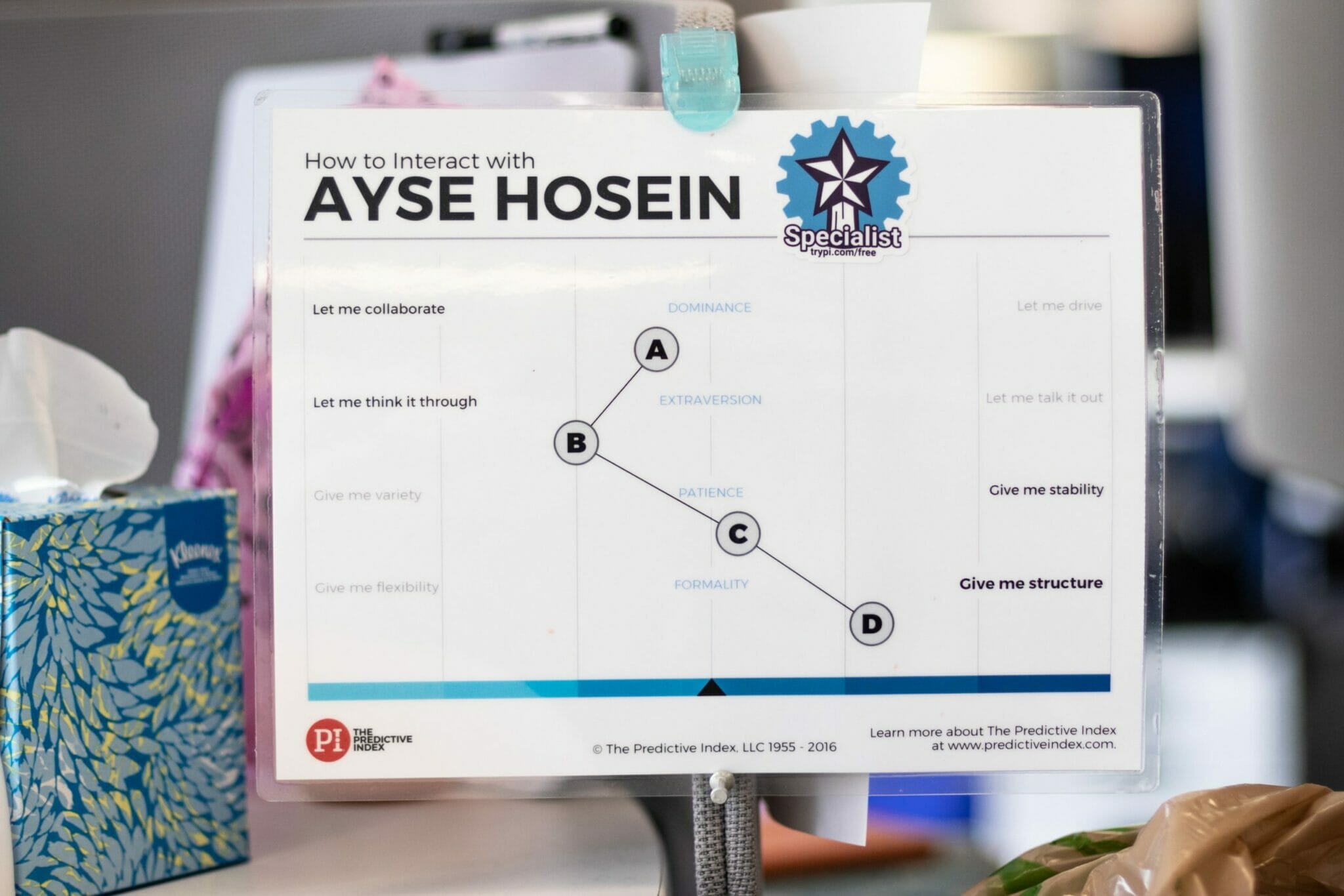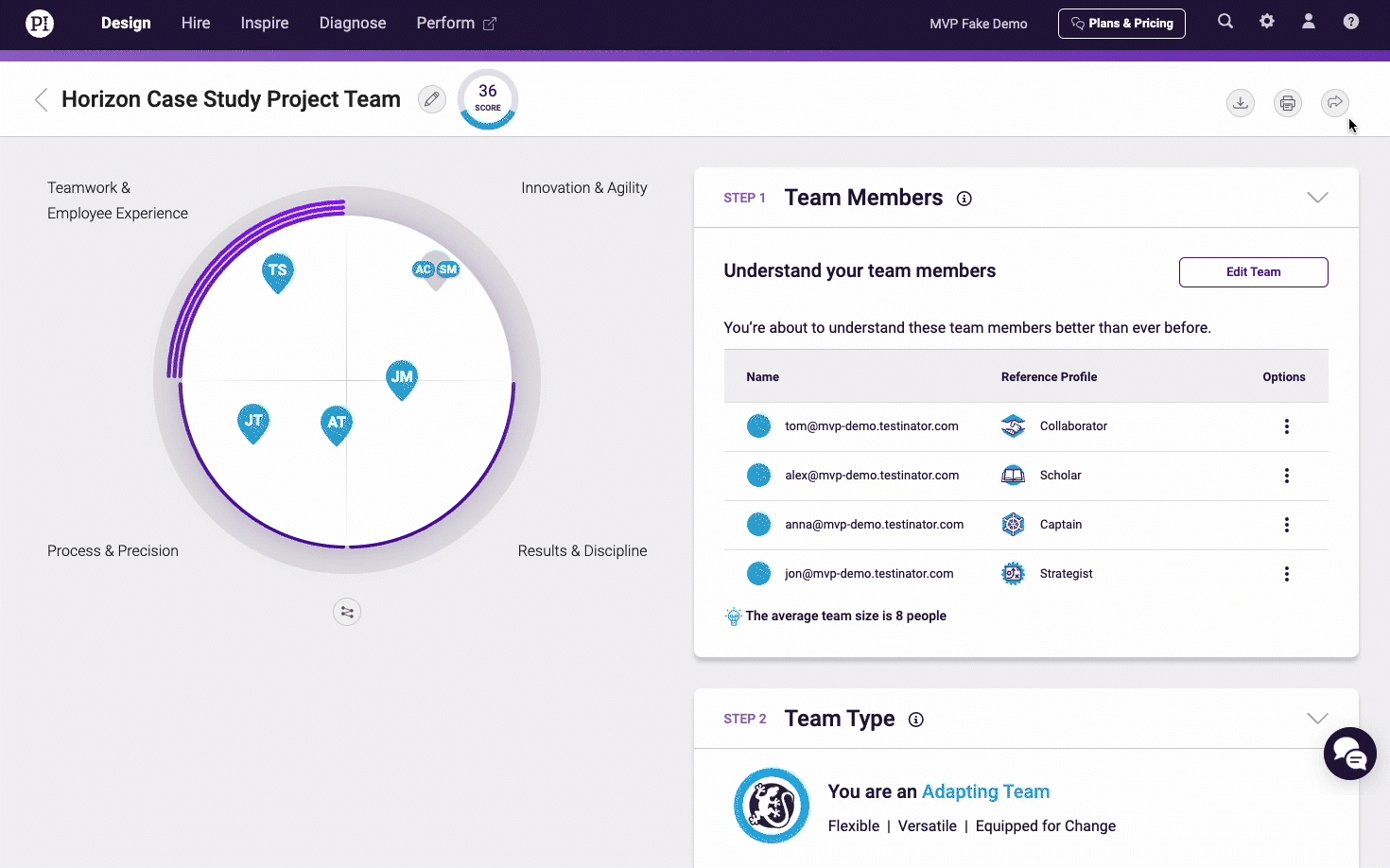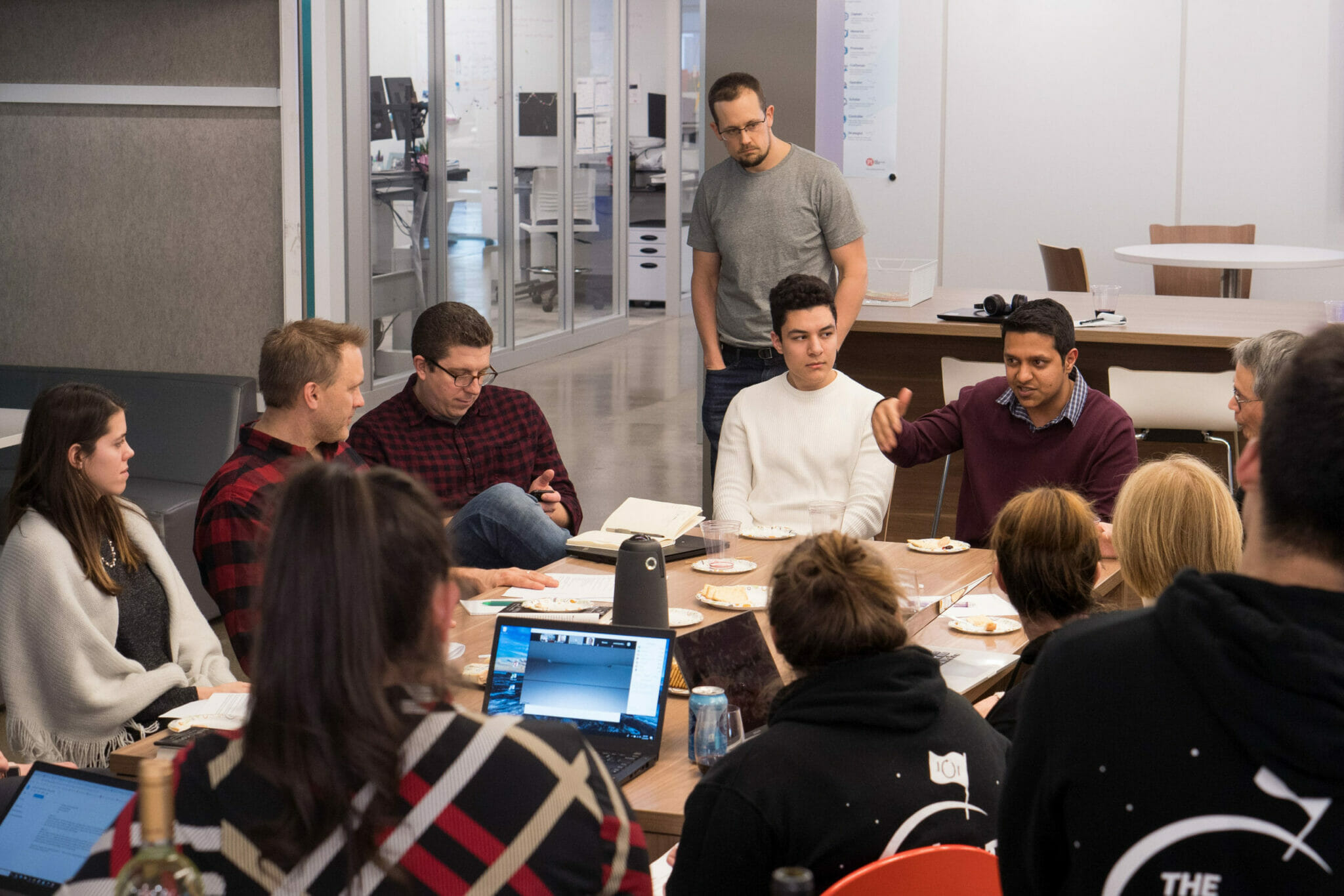My name is Ayse and I’m a Specialist. I’m also the Program Manager of Partner Operations at The Predictive Index (PI). I’m responsible for the success of our entire network of PI Certified Partners. I have the most unique job at PI because not only do I get to work with people from every part of our company, but I get to work with our partners from all over the country and the world, helping them spread the PI love.
My behavioral pattern
The PI Behavioral Assessment™ essentially reveals where you fall on the spectrum of four workplace behavioral drives:
1. Dominance: Dominance is the drive to exert one’s influence on people or events.
2. Extraversion: Extraversion is the drive for social interaction with other people.
3. Patience: Patience is the drive for consistency and stability.
4. Formality: Formality is the drive to conform to rules and structure.
Here’s my pattern:
 To the uninitiated, that behavioral pattern may not mean a whole lot, which is where Reference Profiles come in. All behavioral patterns map most closely to one of our 17 Reference Profiles, which gives us a way to paint the picture of someone’s behavioral drives in broad strokes. You can think of these as easy-to-reference groupings of the characteristics of people who have similar drives.
To the uninitiated, that behavioral pattern may not mean a whole lot, which is where Reference Profiles come in. All behavioral patterns map most closely to one of our 17 Reference Profiles, which gives us a way to paint the picture of someone’s behavioral drives in broad strokes. You can think of these as easy-to-reference groupings of the characteristics of people who have similar drives.
My Reference Profile is Specialist
Here’s what I was told about Specialists: Specialists are highly precise workers, who remain skeptical while respecting authority. We are reserved, introspective, and—one of the things that resonates with me the most—think before speaking. Remember, just because Specialists are silent doesn’t mean nothing is going on up there.
Specialists look for a lot of structure with delegation. In other words, don’t hand me a task with vague directions. I need detail before making any decisions—A LOT of detail, please.
Risk is not for the Specialist. Risk = Failure and we are not good at handling failure. On the bright side, Specialists are understanding and collaborative, as well as thoughtful in our approach and communication with others.
Join 10,000 companies solving the most complex people problems with PI.
Hire the right people, inspire their best work, design dream teams, and sustain engagement for the long haul.
Specialist coming through!
When I first learned about my Reference Profile it resonated deeply with me, especially the aspects describing aversions to risk and not making mistakes. Essentially, I’m a perfectionist; nobody else is harder on me than I am. Making mistakes is not an option. I am extremely introspective and oftentimes look for my own faults before I give anyone else a chance to find them.
The Specialist’s tendency is to make a decision based on the facts, seeking all the details before making a decision. This aspect of my Reference Profile even resonates in my personal life. I remember the time I was searching for a new car.

I ended up buying the car based solely on research I had done and reviews I read. I never actually test drove the car, never saw it in person. When I finally went to go get the car, knowing it was the one for me, I drove it for one test drive and signed on the dotted line, no questions asked. All the extensive research I had done prepared me for what to expect and proved that the car was exactly as I thought it would be; I had done so much research and nothing was a surprise.
Being a Specialist, I gather all of the information I can, become the expert, and hone that expertise. In short, I know where all the bodies are buried, so to speak. My manager has told me that I have always been good at knowing just about everything that’s going on here at PI, all because I’m good at listening. Rather than being the first to share our ideas at meetings or respond to emails, Specialists process, analyze, listen, and then act.
When I first started my job at PI, there were 47 Partners in our Network. There are now over 100 Certified Partners, and I have personally touched every single one of their organizations in one way or another. I am their go-to person here at PI, their eyes and ears, their cheerleader. I make sure they have what they need to be successful so that PI can be successful. My thoughtful approach to communication with the Network allows everyday problems to be solved fast and efficiently, while the highly responsive Specialist I am ensures relationships are not tarnished when conflict arises within the Network.
The dark side of being a Specialist
One of the downsides of being a Specialist is our communication may come off as short. Specialists are very direct and to the point. We want the details upfront and as soon as possible so we can do the best job we can to complete the task at hand.
Because of how hyper-focused I tend to get on work, it may seem like I don’t care about what’s going on around me, but it’s only because Specialists work at a faster-than-average pace. We are focused on precision and detail and will oftentimes get lost in our work.
One of the things I’ve found difficult in my day-to-day is the Specialist’s tendency to be cautious and have a more thoughtful approach to communicating information. Because of this, we have a harder time pushing our own ideas or speaking up.

How to work with (and manage) this profile
When working with Specialists:
- Give us time to develop our specialty. We are more confident once we are fully trained or have more experience.
- Provide clarity to Specialists so we can do things the right way without the risk of making mistakes.
- Recognize our specialized skills to help us feel secure.
Here’s the advice I’d give to someone managing Specialists:
- We need clear guidance and direction. We need to know what the rules are—what’s OK and what’s not OK.
- One of the other key characteristics of a Specialist is the need for information and detail. We are not looking for just the where and when, but the how, why, and who. We need detail upfront.
- We don’t like risk because we don’t like to fail and if taking risks means even the slightest possibility of failing, we’re out.
- We’re not going to easily say yes to a project or task before we know whether we can rise to the challenge or not. This conflicts with our need to always want to say yes because we don’t want there to because for someone to label us a failure.
- My manager is my biggest support system. Our manager needs to help us celebrate our wins. We’re not good at tooting our own horn or giving ourselves a pat on the back.
- We need time to process things but we can adapt to change quickly when we can build that change into our own process, in our own way.
“I no longer needed to fit into this mold of what I thought an organization wanted me to be, act, or work.”
Once I learned about my Reference Profile it was like a weight had been lifted from my shoulders. I no longer needed to fit into this mold of what I thought an organization wanted me to be, act, or work. I could be OCD Ayse without being judged. Now there’s a reason behind my work style and behaviors. Coworkers and managers understand why I need ALL the details and why process is important for me to complete projects. Just remember, silence doesn’t always mean I have nothing to say but rather I am processing and thinking of something truly amazing or groundbreaking…I’m just not ready to share it yet…









